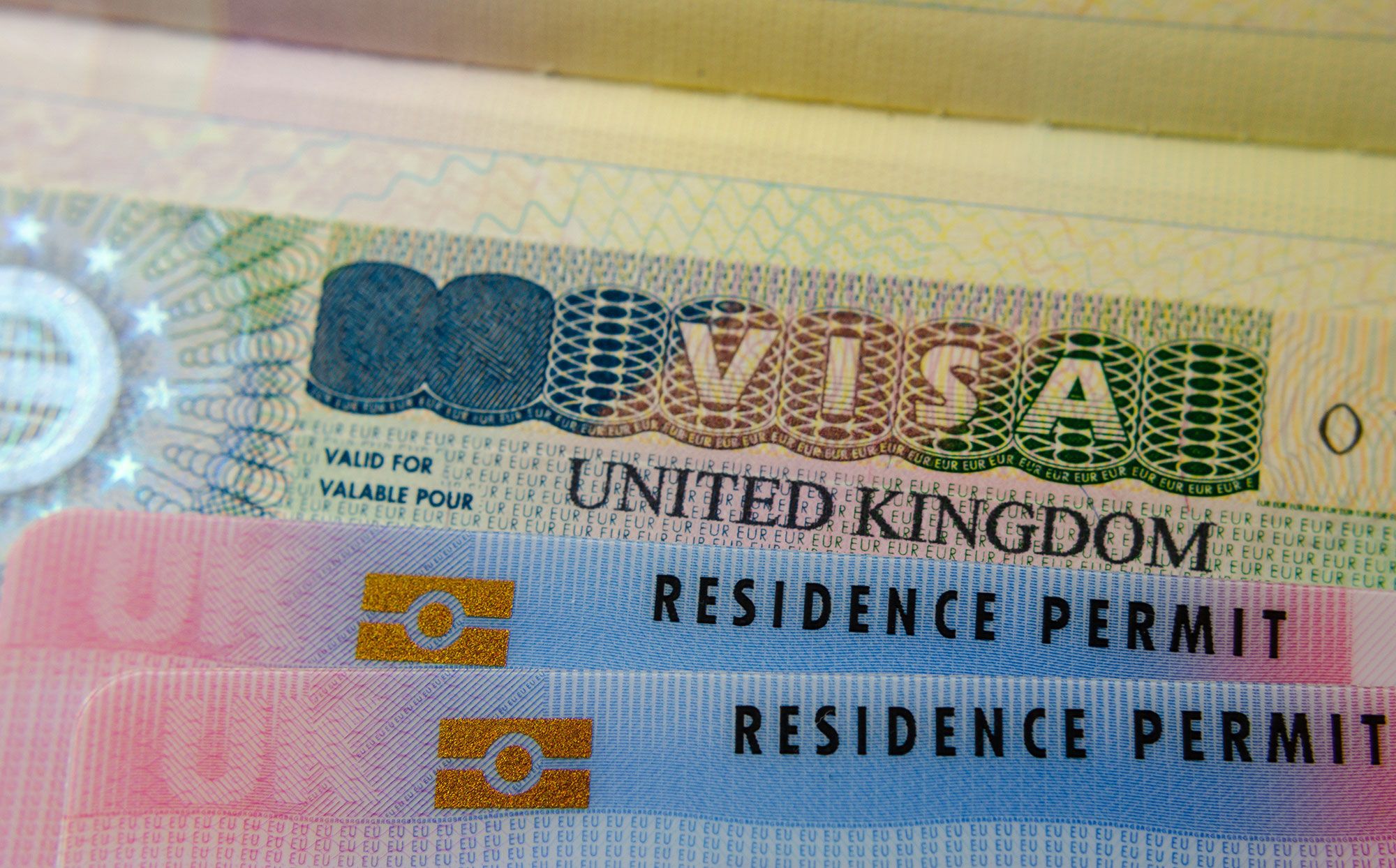What do the upcoming changes to the Home Office Sponsorship System mean to me as an Employer?
Since the introduction of the new UK points-based system back in December 2020, the Home Office has been introducing changes to the sponsorship system that can speed up operations for both employers and the Home Office.
The Home Office has so far:
- Removed the Resident Labour Market Test;
- Suspended the cap on Skilled Workers;
- Made the sponsor licence application process paperless;
- Introduced pre-licence priority service which speeds up application processes for businesses; and
- Introduced Chip Checker which enables holders of certain biometric passports to prove their identity from their own home or workplace.
These changes have significantly reduced the length of process to recruit an overseas worker by up to 8 weeks and have so far been proven popular as there was an increase of 9% on the register of work sponsors compared with last calendar year.
Moreover, the Home Office has recently published a Roadmap for the upcoming changes that will be implemented in 2021 and 2022, and here is an overview of the upcoming changes.
By Q4 of 2021, new changes will be introduced to reduce the burden on the sponsor to maintain their licence by introducing an enhanced Skilled Worker eligibility checking tool. This makes it easier for employers and workers to understand if a particular job is eligible under the Skilled Worker route. They will also introduce a new salary check pilot with HMRC to make sure employees are being paid accordingly. By Spring 2022, improvements will be delivered to ensure that the time it takes to obtain a sponsor licence (from application to approval) will be significantly reduced.
To reduce the processing time of applications even more for sponsorship licences and Skilled Worker visa, a brand-new sponsorship IT system will be introduced in 2023. By Q1 of 2024, the IT system will be fully rolled out. The new system comes with features such as automated checks with HMRC and Companies House will reduce the burden on employers in providing paperwork. For prospective employees, this will greatly reduce the time and difficulty of visa application, as application forms will already be pre-filled with the employer’s information. This means that employers like you will take less time to get a sponsor licence.
Besides sponsorship of workers, in Spring 2022, the Home Office will launch the new Global Business Mobility route, allowing overseas businesses to establish a presence here or to transfer staff to the UK. The changes mentioned above will also make the process a lot easier for overseas businesses.
There are also plans for changes to sponsoring students. The Home Office are working with education providers to explore ways on how to deliver reforms that will benefit users. More details will be provided by the Home Office soon.
The upcoming changes will make the sponsorship system more digital, simplified and modern. This certainly has given users and stakeholders more confidence in the sponsorship system as the Home Office continue to seek ways to improve and streamline the process for users.
Should you require assistance with obtaining sponsorship license or sponsorship of migrant workers, please do not hesitate to contact our immigration team.
Please note that requirements may vary from case to case based on the nuances of your situation, and the information on this page is not intended to replace legal advice.
Paragraph 39E of the Immigration Rules
What Paragraph 39E of the Immigration Rules is all about and how to use it in practice?
To those who do not practice UK Immigration on a regular basis, the Immigration Rules might look complex, confusing and, somewhat, restrictive on what applicants can or cannot do in the United Kingdom. For this reason, it does not come as a surprise when applicants attempt a UK visa application themselves and fail on technicalities or simply because they were not aware of the requirements attached to the chosen visa category. Thankfully, there is a provision of the Immigration Rules which allows the applicants to not only not became overstayers in the UK but also to make another attempt at a visa application within the UK following the refusal.
If applying for a visa within the UK, on the date of application, the applicants must not have remained in the UK after the expiry of their current visa, in other words, must not be overstayers. On 24 November 2016 the Immigration Rules were amended to abolish the 28 day grace period and paragraph 39E was introduced, which allows for the current period of overstaying to be disregarded.
The paragraph 39E reads as follows:
“39E. This paragraph applies where:
(1) the application was made within 14 days of the applicant’s leave expiring and the Secretary of State considers that there was a good reason beyond the control of the applicant or their representative, provided in or with the application, why the application could not be made in-time; or
(2) the application was made:
(a) following the refusal of a previous application for leave which was made in-time; and
(b) within 14 days of:
(i) the refusal of the previous application for leave; or
(ii) the expiry of any leave extended by section 3C of the Immigration Act 1971; or
(iii) the expiry of the time-limit for making an in-time application for administrative review or appeal (where applicable); or
(iv) any administrative review or appeal being concluded, withdrawn or abandoned or lapsing.
(3) the period overstaying was between 24 January and 31 August 2020; or
(4) where the applicant has, or had, permission on the Hong Kong BN(O) route, the period of overstaying was between 1 July 2020 and 31 January 2021.”
Overstaying and Section 3(c) leave
There are two aspects of paragraph 39E: overstaying and Section 3(c) leave of the Immigration Act 1971.
Firstly, the period of overstaying will be disregarded if there is a “good reason” beyond the control of the applicant or their representative as to why the applicant’s visa application was not submitted before their UK visa expired, provided that the application is made within 14 days of the expiry of leave.
Example:
Candice is a Chinese national, who is working in the UK. She was admitted to a hospital, which prevented her from making an in-time application to extend her Skilled Worker visa. She submitted her extension visa application to the Home Office straight after being discharged from the hospital, which was also within 14 days of the expiry of her Skilled Worker visa. She provided a letter from her doctor in support of her visa application. The delay in submitting her visa application in time was beyond Candice’s control, therefore, the Home Office is highly likely to accept that there was a “good reason” for the delayed visa application.
Secondly, the period of overstaying will be disregarded where a visa application, which was submitted before the expiry of leave, was refused and a new visa application was made within 14 days of:
- i) the refusal of the previous application for leave; or
(ii) the expiry of any leave extended by section 3C of the Immigration Act 1971; or
(iii) the expiry of the time-limit for making an in-time application for administrative review or appeal (where applicable); or
(iv) any administrative review or appeal being concluded, withdrawn or abandoned or lapsing.
Example:
Joey is a Chinese national. He is present in the UK under the Innovator visa. He made an in-time visa application within the UK to switch to a Skilled Worker visa, however, it was refused by the Home Office because the sponsoring company assigned him an incorrect type of Certificate of Sponsorship (“COS”).
The sponsoring company then applied for a correct type of COS and assigned it to Joey once allocated by the Home Office. Joey submitted a fresh application to the Home Office within 14 days of the date of the refusal of his previous Skilled Worker visa application. His new application is granted.
Another aspect of paragraph 39E is Section 3(c) leave of the Immigration Act 1971. The purpose of this section is to prevent an applicant, who makes an in-time application within the UK, from becoming an overstayer while they are awaiting a decision on that application and while any appeal or administrative review they are entitled to is pending.
Example:
From the previous example, Joey’s leave was extended by Section 3(c) until his initial Skilled Worker visa application was refused, which prevented him from becoming an overstayer.
If Joey decided to challenge the Home Office’s decision in a way of an Administrative Review, his Section 3(c) leave would have been extended until his Administrative Review is concluded.
It is important to note that Section 3(c) leave cannot be relied on twice. This was concluded earlier this year by the Court of Appeal in the case of Kalsi & Ors v Secretary of State for the Home Department.
Consequences of overstaying
Overstaying is a breach of UK Immigration law, and, in essence, a criminal offence, which can carry long-term consequences. The overstayers can be banned from re-entering the UK for a period of up to ten years in some circumstances.
If someone becomes an overstayer in the UK, they will be exposed to the UK hostile environment, which means to have restrictions on renting accommodation in the UK, open a bank account or even access medical treatment.
Conclusion
It is advisable to avoid overstaying in the UK. Immediate actions must be taken if someone is at risk of becoming an overstayer or has already overstayed their leave, and paragraph 39E can be a solution.
If you are concerned about your immigration status in the United Kingdom, please do not hesitate to contact our Immigration Team for guidance.
Please note that requirements may vary from case to case based on the nuances of your situation, and the information on this page is not intended to replace legal advice.
Strategic Cooperation Agreement Signing
ChongQing Hezong Law firm
Publicity Release
Strategic Cooperation Agreement Signing
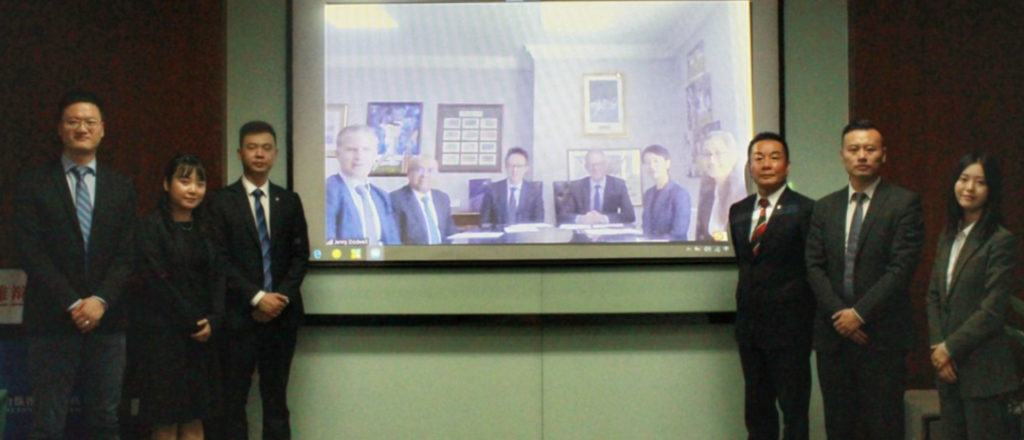
On 23rd June 2021, Senior representatives of Chan Neill Solicitors LLP and Chongqing Hezong Law firm officially signed a Strategic Cooperation Agreement connecting the two firms in London and ChongQing.

In the online signing, the Managing Partner Andrew Neill, Senior Partner Michael Chan, Senior Solicitor Naynesh Desai, Senior legal excutive Stuart Angel, International BD manager Jenny Chen and Practice manager Farida Fakhrul from Chan Neill Solicitors LLP and Chief Partner LU Lei, Senior Partner and Director of the Administrative Committee FU Lei, Senior Partner and Deputy Director of the Management Committee WEI Wei, Partner and Director of the Foreign Legal Service Center TAN Yang, Solicitor MOU Ke, and Solicitor TANG Zilan from Hezong Law firm, agreed to commence and launch their strategic cooperation agreement.
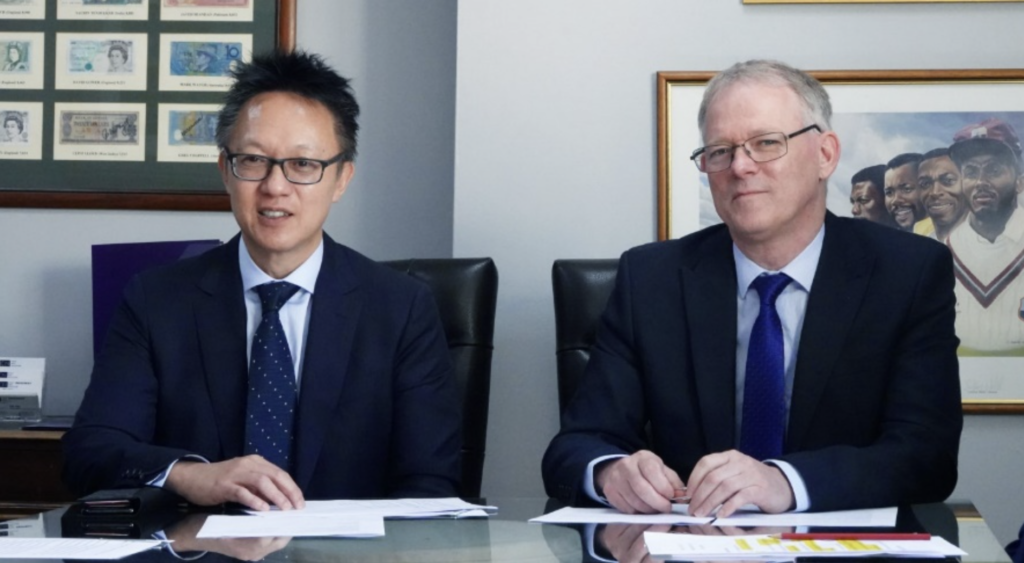
Michael Chan and Andrew Neill
Chan Neill Solicitors LLP, was established in 2003, as a full-service law firm located in the city of London and Mayfair along with a representative office in Singapore. The firm offers legal services in business, corporate, business litigation, insurance litigation, personal and catastrophic injury, real estate, employment law, family law, education & immigration, gaming law, tax service, trusts and private client etc.
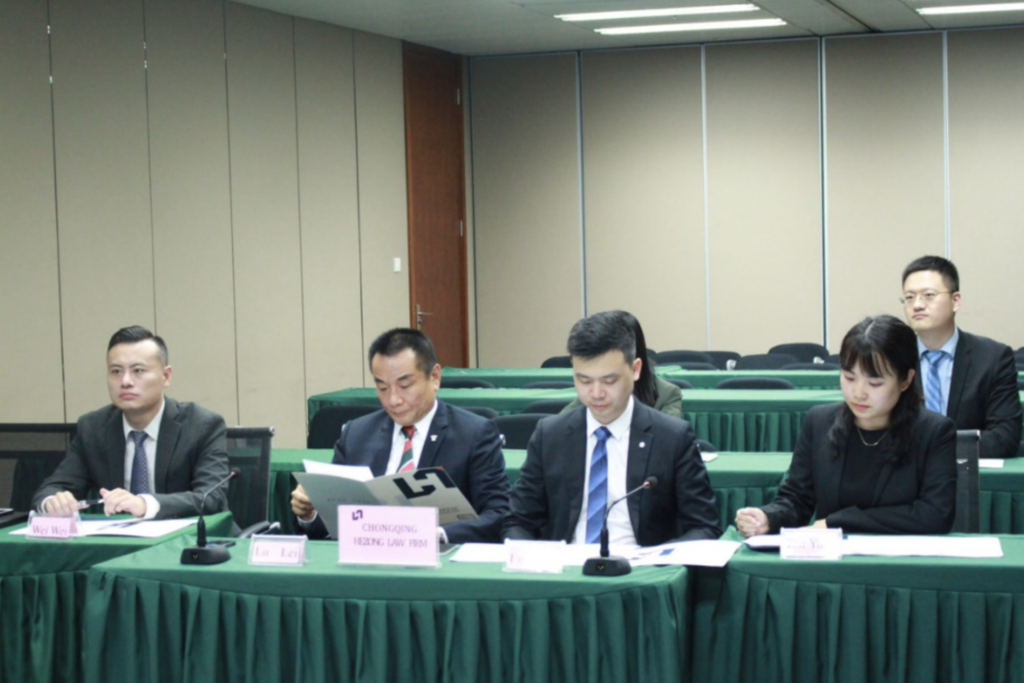
Chongqing Hezong Law Firm was established in May 1994. Hezong is accredited as a “PRC Law Firm of Excellence at Ministerial Level” by the Ministry of Justice in China. Hezong Law Firm practises in ten legal areas including finance, corporate, civil, criminal, tax, intellectual property, construction, bankruptcy, and foreign-related business. Starting from its base in Chongqing, Hezong has gradually developed and expanded its business throughout China.
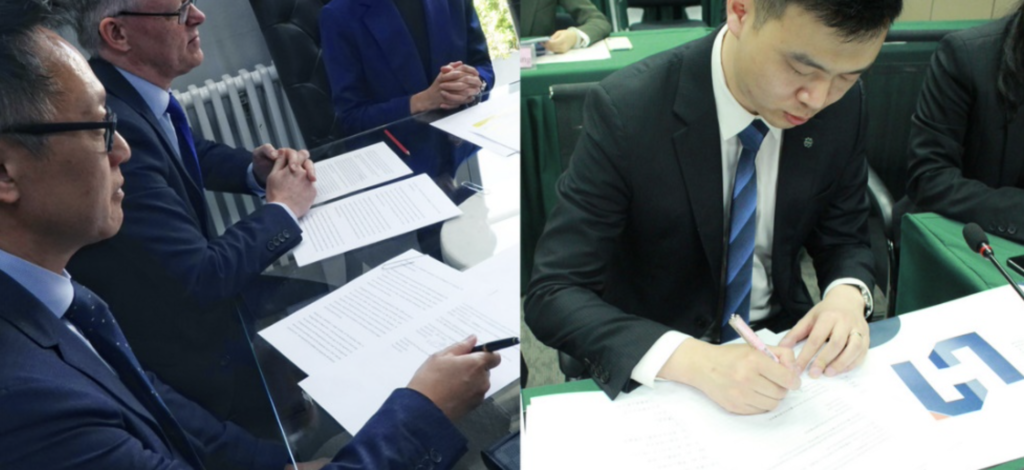
Chan Neill Solicitors LLP and Chongqing Hezong Law Firm are delighted to agree this strategic cooperation. Both firms are sure this will actively assist their clients’ requirements and both firms’ business objectives. It is envisaged that the Agreement of Cooperation will enable clients to benefit and will provide strong support to them both in China and in the UK. It is hoped that the Agreement will enable clients to have the edge in strategic planning, business negotiation, contracts within or between parties with interests both in China and UK, and will ensure clients of both firms can achieve their desires so far as legal solutions are concerned.
Press Release
Chan Neill Solicitors LLP & Guangdong Zhuo Jian Law firm
Publicity Release
Strategic Cooperation Agreement Signing
On 20th May 2021, Senior representatives of Chan Neill Solicitors LLP and Guangdong Zhuo Jian Law Firm officially signed a Strategic Cooperation Agreement connecting the two firms in London and Shenzhen. In the online signing, the managing partner Andrew Neill, senior partner Michael Chan, international BD manager Jenny Chen and practice manager Farida Fakhrul from Chan Neill Solicitors LLP and Guangdong Zhuo Jian’s senior partner, Mr. Mu Yinli and Director of Financial Law Department Mr. Jin Zhenzhao, agreed to commence and launch their strategic cooperation agreement.
Chan Neill Solicitors, now Chan Neill Solicitors LLP, was established in 2003, as a full-service law firm located in Central London. It now also has offices in Mayfair along with a representative office in Singapore. The firm offers legal services in business, corporate, litigation, personal and catastrophic injury, real estate, insurance, employment, family, immigration, gaming law and trusts & private client.
Guangdong Zhuo Jian Law Firm is a law firm offering legal services in China in foreign-related legal affairs, company law, criminal law, financial law, intellectual property law, employment law, matrimonial family and wealth inheritance law, and dispute resolution.
Chan Neill Solicitors LLP and Guangdong Zhuo Jian Law Firm are delighted to agree this strategic cooperation. Both firms are sure this will actively assist their clients’ requirements and both firms’ business objectives. It is envisaged that the Agreement of Cooperation will enable clients to benefit and will provide strong support to them both in China and in the UK. It is hoped that the Agreement will enable clients to have the edge in strategic planning, business negotiation, contracts within or between parties with interests both in China and UK, and will ensure clients of both firms can achieve their desires so far as legal solutions are concerned.




Why does my BRP card expire on 31 December 2024?
For many years now, successful Indefinite Leave to Remain applicants in the United Kingdom have been issued with Biometric Residence Permits (commonly known as BRP cards) with the validity date as 31 December 2024. It has also been observed that nowadays, those applicants, who are being granted limited leave to remain for a period beyond this date, are also being issued with BRP cards which are due to expire on 31 December 2024. Why the Home Office issues BRP cards with this set date?
It has been explained by the Home Office that in the past, under EU law, it was a requirement to restrict the validity of BRP cards which do not incorporate the latest encryption technology. The Home Office vowed to introduce BRP cards in new format this year which will reflect the exact period of grant as confirmed in the approval later. So far, this has not been the case.
According to the information currently available on GOV.UK website: “You do not need to tell UKVI if your BRP expires on 31 December 2024 but you have leave to stay longer. UKVI will update their information on how to update your BRP in early 2024. You do not need to do anything and your immigration status will not be affected.”
In the meantime, BRP card holders can check and prove their immigration status using the online service: www.gov.uk/prove-right-to-work. As an alternative, employers can obtain evidence of their employees’ immigration status in the UK online: https://www.gov.uk/view-right-to-work.
If you have concerns about your UK immigration status, do not hesitate to contact our immigration team.
Please note that requirements may vary from case to case based on the nuances of your situation, and the information on this page is not intended to replace legal advice.
Home Office Compliance Visits back on
The Home Office compliance visits aim at checking whether an organisation has the appropriate HR and recruitment systems and procedures in place to be able to monitor the migrant workers and ensure that the organisation’s duties and obligations as a Licensed sponsor have been fulfilled.
Such visits can be conducted by the UK Visas and Immigration before or after the Sponsorship License has been granted and can be announced or unannounced.
The visits were suspended during the first lockdown and then again in December 2020 when the United Kingdom entered second national lockdown due to the COVID-19 outbreak. As the UK Government has started to ease the restrictions, the Home Office has now announced that the compliance visits will shortly be resumed.
The prospective and existing Licensed sponsors are aware that it is important to comply with the Home Office’s requirements since noncompliance may lead to the License application being refused or existing License being suspended or revoked. This, essentially, could lead to inability to offer sponsorship to migrant workers.
With reference to the most recent statistics published by the Home Office, 523 Sponsorship Licenses were suspended between Q4 2019 and Q3 2020. This figure was considerably lower in comparison with the previous 12 months' period, largely due to the pandemic. The Compliance Officers are becoming more rigorous, as such, we remind all Licensed sponsors about the importance of complying with their duties and obligations and being up to date with the recent changes in the compliance procedure.
At Chan Neill Solicitors we regularly assist organisations with their Sponsorship License matters. We conduct mock Compliance Visits and assist the organisations during the Home Office visits. For more information please do not hesitate to contact our office.
Don't Fall Prey to Telephone Scams!
1. Are there a large number of enquiries for phone scams among international students? Have you or any of your fraud lawyers take a case of telecoms fraud? Could you please enumerate and talk about it briefly?
-
My firm does receive some enquiries in respect of telecoms fraud/scams from the Chinese community. It usually encompasses a mixture of email, telephone and WeChat/Whatsapp scams. The types of scam we encounter are typically payment fraud and currency exchange fraud/money laundering.
-
The usual tactics for the fraudster are to pretend to be a trusted third party, for instance HMRC, the Court, the Chinese Embassy, or your bank etc.
-
HMRC – the fraudster may claim there is an issue with your tax refund or an unpaid tax bill and ask you for your personal information including your National Insurance Number. There is another scenario where people are being called and a pre-recorded message purportedly from HMRC, informs them that they owe money and that they are urgently required to call a separate telephone number to halt further action being taken against them. Upon calling the number, the consumer is given a long reference number and are threatened that “if you don’t transfer the money you owe us, it could lead to your arrest.”
-
The Court – the fraudster may pretend to be a court clerk and claim there is a criminal proceedings against you and ask you to pay immediately in order to remove the charges.
-
Bank – – fraudster would call and claim himself to be from your bank, saying there’s a problem with your card or account. They may ask for your account, card and PIN details. They may also advise transferring your money to a secured account to protect the deposits.
I understand the main concern for victim is how to get their monies back. You might be able to get your money back after you’ve been scammed but it would be very difficult. What you should do, and whether you’ll get a refund, depends on what happened.
Chan Neill Solicitors have acted for victims including international companies and international students on a larger scale.
-
In respect of international students, our firm had received enquiries where for example student A had been helping a “friend” of hers who they became acquainted with on WeChat. Student A then allowed the friend to use her personal bank account as a conduit to transfer monies (cash deposit) to different third parties’ account, without knowing the source of the funds and the purpose of the transfers. Her account was then subject to an Account Freezing Order applied by the police authorities. She did not know “helping a friend” might be illegal and subject to fraud. It started with a WeChat invitations and a phone call. Our firm was successful in negotiating an out-of-court settlement with the police authority.
-
In respect of International Companies, we have acted for overseas companies to recover funds they remitted to the UK bank which was opened by email scammers. Funds can be recalled successfully after negotiations with the banks.
2. In the case we’ve interviewed before, many international students said that after they were defrauded of money, both their home-country’s police and British police cannot help and said they have no authority over this issue, so is there any blind spot of legal supervision? What the blind spot is? We understand many international students have fallen victim to telecoms scams and were defrauded of money. There are practical difficulties which will be explained further below: –
-
Personal information of the scammer – In order to issue a court claim, you will need to identify the name and address of the scammer in order to make a claim against him/her. Whether you can identify the scammer’s name and address will be crucial for issuing a claim.
-
Jurisdiction – Telecoms scams and phishing attacks can take place on a global scale without regard to jurisdictional boundaries. The obstacles include differing laws and standards of evidence to prosecute offenders, and the need for mutual cooperation to take effective cross-jurisdictional action. It would be difficult for Police to prosecute an individual in a different jurisdiction.
-
Costs – Whether legal costs are proportionate compared to the claim amount.
-
Tracing – whether the monies are still in the scammer’s bank account, if not where did the money go? It is very difficult to trace funds if they have been transferred to different parties in different bank accounts. This is usually the next step scammer do to make it even harder to trace.
3. Is there any relative legal provisions does the British government have for this issues to protect international student?
-
The Fraud Act 2006 (the Act) came into force on 15 January 2007 and applies in England, Wales and Northern Ireland.
-
The Act repealed the following offences:
-
Theft Act 1968
-
Section15 (obtaining property by deception);
-
Section15A (obtaining a money transfer by deception);
-
Section 16 (obtaining a pecuniary advantage by deception).
There may be other ways for international students claim their monies back.
Again this can only be considered if you know the true identity of the fraudster.
4. What should international students do if they encounter similar problems, could you provide some suggestions to us?
The likely scenarios where an international student may encounter are: –
you’ve used your debit card and more money was taken than you expected; or
you’ve made a payment to a scammer from your account.
We recommend international students to take the following steps:
-
Contact the police immediately by calling 101 if:
-
the scammer is in your area
-
you’ve transferred money to the scammer in the last 24 hours
-
If you feel threatened or unsafe call 999.
-
Gather all the details of the scam and write to your bank immediately and explain clearly what had happened and ask whether you can stop the payment or get a refund.
-
report the issue to Action Fraud , the UK’s national reporting centre for fraud. Action Fraud can get the National Fraud Intelligence Bureau to investigate scams. They’ll also give you a crime reference number, which can be helpful if you need to tell your bank you’ve been scammed.
If you are not happy with how the bank deals with your claim, you may consider instructing solicitors to assist as we are more experienced in handling these situations. It may also be worthwhile to instruct solicitors in the beginning as we can ensure consistency and clarity over the steps and representations made. In summary for this interview, international students are advised: –
-
Not to give out personal information and banking details on phone or email.
-
If you’ve already responded to a suspicious message or provided personal/banking details, contact your bank immediately to stop any activity, ask for a new card, change the security password/pin number if necessary.
-
If monies has been sent, then this maybe the time to consider looking for help from solicitors.
We will be able to assess the scenario and see whether there are other legal procedures that maybe suitable to take depending on the circumstances. Possible steps may include: –
-
Raise a formal complaint with the bank
-
Financial Ombudsman complaint
-
Regional or Global Freezing Injunction
-
Go to court
Global Talent visa – summary of upcoming changes
The Global Talent visa caters to leaders or prospective leaders in the fields of science, engineering, humanities, medicine, digital technology or arts and culture.
With the introduction of more restrictive Innovator visa, the Global Talent route has gained popularity as it offers not only freedom of employment in the United Kingdom but also possibility to operate your own business. The other benefits of the Global Talent visa include possibility to settle in the United Kingdom after 3 years of being endorsed as an Exceptional Talent, permission to enter/remain in the UK for up to 5 years on a single application, absence of the requirement to have a confirmed job offer, and fast-track scheme which provides a quicker endorsement. In addition, there is no English or maintenance requirement and there is no cap on the number of eligible individuals who can use this visa route.
When applying for the Global Talent visa, there is a two-part process. The first part includes an application for endorsement, whilst the second part is the visa application itself, subject that the endorsement application being successful.
In the past years there have been a few changes made to this visa route. The latest changes were announced by the Home Office on 22 October 2020. Important to note that applications submitted on or before 30 November 2020 will be assessed according to the current Immigration Rules. Whereas applications submitted on or after 1 December 2020 will be assessed under the new Rules. The new changes, which concern part one of the process, are made to the criteria for consideration of senior appointments and the definition of the types of academic and research roles that qualify under this visa route.
The most noticeable changes concern Digital Technology applicants who wish to be endorsed by Tech Nation. As such, the Key and Qualifying criteria are being restructured whereas a simpler set of mandatory and optional criteria will be introduced.
At present, the prospective Digital Technology applicants are required to provide at least 10 documents showing compliance with minimum one Key and two Qualifying criteria. As of 1 December 2020, leading talent and potential leader applicants will be required to demonstrate compliance with at least 2 out of 4 optional criteria. Most importantly, the criteria regarding Continuous Learning is being removed.
For many years our Immigration Team has successfully assisted applicants with their applications under the Global Talent and its predecessor Tier 1 (Exceptional Talent) visa routes. Please do not hesitate to contact our Immigration Team for assistance and advice in relation to entry clearance or permission to stay in the UK and settlement visa applications under the Global Talent route.
Please note that requirements may vary from case to case based on the nuances of your situation, and the information on this page is not intended to replace legal advice.
Until when can I remain in the UK due to ongoing COVID-19 outbreak?
Throughout the last few months, the UK Government has taken several measures to combat the spread of the COVID-19. One of those measures was the closure of international travel borders. The inability to return to the countries of permanent residence due to flights restrictions and cancellations caused by the COVID-19 outbreak resulted in many people overstaying their UK visas.
The UK Government acknowledged the situation and to date has made several concessions. As such, the Home Office’s initial guidance conferred leave to remain until 31 March 2020 to Chinese citizens only, whose UK visas had expiry date between 24 January 2020 and 30 March 2020. The same was allowed to non-Chinese nationals who were normally resident in China.
The UK Government’s guidance was updated on 24 March 2020 to cover all nationalities, enabling people to extend their visas until the 31st of May.
On 22 May 2020, the UK Government extended its concession to 31 July 2020.
The travel restrictions have now been lifting globally. As a result, the Home Office is now expecting that people take all reasonable steps in order to regularise their immigration status in the UK or to leave the country by the 31st of July 2020. However, the announcement created somewhat of a confusion, since many countries worldwide are still in lockdown, hence, will not be opening their international travel borders at least by the end of August.
The UK Government was prompt to provide further clarifications. On 30 July 2020, amended guidance was published on GOV.UK website stating as follows:
“To allow time to make the necessary arrangements to leave the UK, if you have a visa or leave that was due to expire between the 24 January 2020 and 31 August 2020, you’ll be able to stay within the UK to 31 August 2020.
From 1 to 31 August 2020, the conditions of your stay in the UK will be the same as the conditions of your leave. So, if your conditions allowed you to work, study or rent accommodation you may continue to do so during August 2020 ahead of your departure.”
The announcement further goes on to clarify that those, who intend to leave the UK but unable to do so by the 31st of August, may request additional time to remain in the UK by contacting coronavirus immigration team.
Most importantly, the Home Office has now confirmed that the period of overstaying in the UK between 24 January 2020 and 31 August 2020 will have no future adverse immigration consequences for those, who did not make an application to regularise their immigration status.
If you are concerned about your immigration status in the UK, please do not hesitate to contact our immigration team for advice.
Please note that requirements may vary from case to case based on the nuances of your situation, and the information on this page is not intended to replace legal advice.
COVID 19: Innovator and Start-Up visas
In these unprecedented times, Innovator and Start-Up applicants might find themselves in the situation, where they may experience difficulties fulfilling their business plans and maintaining contact with their endorsing bodies.
The Home Office has been prompt in addressing the issues surrounding Innovator and Start-Up migrants may face due to the Coronavirus outbreak:
1. Individuals who have not yet been endorsed
Endorsing bodies may still issue endorsements. If prospective applicants are outside the UK, the endorsing bodies should ask them whether they are able to make a visa application and to travel. The endorsing bodies should also consider with all applicants whether they are likely to be able to start developing their business in the UK under the current situation. If not, they should consider delaying the applicants’ endorsements until a later date.
2. Individuals who have been endorsed but have not yet applied for a visa
Endorsement letters are valid for 3 months. If an individual is unable to make a visa application within this timeframe, the endorsing bodies will need to issue them with a new endorsement (using a new secure reference number) before they can apply. The endorsing bodies should have a discussion with the applicants (as set out above) before they do so.
3. Individuals who have applied for a visa but are unable to travel
Individuals should refer to the Coronavirus (COVID-19) immigration guidance on gov.uk website for the latest information.
4. Individuals who are due to have a checkpoint with their endorsing body
Endorsing bodies should maintain contact checkpoints with the individuals they have endorsed wherever possible. It is not necessary for these to be face-to-face. The Home Office encourage endorsing bodies to arrange checkpoints via telephone or video conferencing. It is important for applicants to know that they continue to have the support of their endorsing bodies. The endorsing bodies should make allowances for the current situation when considering the applicants’ progress against their business plans and where possible, discuss future contingencies. The endorsing bodies must notify the Home Office if an applicant misses a checkpoint without their authorisation.
5. Individuals who need to apply to extend their stay
The endorsing bodies should continue issuing endorsements as normal to individuals who are in the UK, whose visas are expiring and who wish to apply to switch into the Start-Up or Innovator categories or to extend their stay in the Innovator category. For those applying to switch from Start-up to Innovator or to extend their Innovator visa, as with the checkpoint guidance above, the endorsing bodies should make allowances for the current situation when considering the applicants’ progress against their business plans and where possible, discuss future contingencies.
At Chan Neill Solicitors we continue assisting clients with their Immigration enquiries. If you are concerned about your current visa or about your prospective visa application, please do not hesitate to contact our Immigration team.


